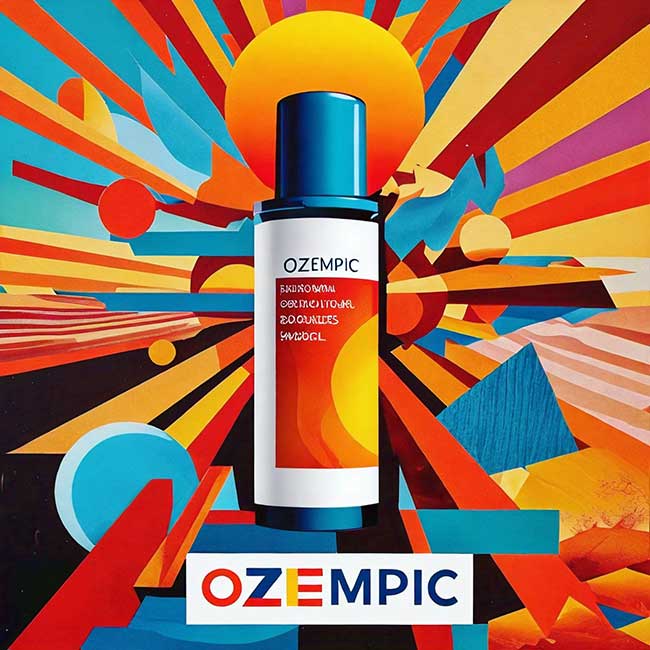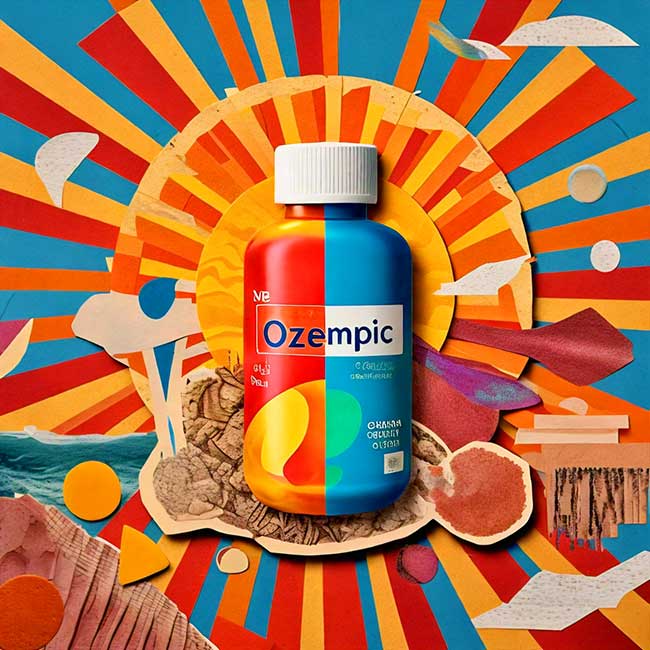
A Shocking Twist in the Tale of Weight Loss Drugs
Who would have thought that a drug primarily known for helping people shed pounds could also be a secret weapon against alcohol addiction? A recent study has sent ripples through the medical community, suggesting that medications like Ozempic might be more effective in treating alcoholism than traditional methods.
How Does Ozempic Work Its Magic?
Ozempic, a medication belonging to a class of drugs called GLP-1 receptor agonists, was initially designed to manage type 2 diabetes. It works by mimicking a hormone that regulates blood sugar levels and appetite. But researchers have discovered an unexpected side effect: it seems to reduce cravings for alcohol.
The Science Behind the Cravings
While the exact mechanism isn’t fully understood, scientists believe that GLP-1 receptor agonists may influence the brain’s reward system, which plays a crucial role in addiction. By dampening the pleasure associated with alcohol consumption, these drugs can help individuals reduce their reliance on alcohol.
A Game-Changer for Alcoholism Treatment?
The potential of Ozempic and similar drugs to revolutionize alcoholism treatment is undeniable. Traditional methods, such as therapy and support groups, have been the mainstay of addiction treatment for decades. However, these approaches can be time-consuming and challenging for many individuals.
With Ozempic, there’s the promise of a more rapid and effective treatment. By targeting the underlying biological mechanisms of addiction, these medications could offer a powerful tool to help people overcome alcohol dependence.
But, There’s a Catch
While the early findings are promising, it’s important to remember that more research is needed to fully understand the long-term effects and safety of using GLP-1 receptor agonists for alcohol addiction.
Additionally, it’s crucial to address the ethical implications of using these drugs for a purpose other than their intended use. As with any new treatment, careful consideration must be given to potential side effects and the risk of misuse.

The Road Ahead for Alcoholism Treatment
While Ozempic and similar medications show promise, it’s important to remember that they’re not a standalone solution. A comprehensive approach, combining medication with behavioral therapies, is likely to yield the best results.
The Importance of Behavioral Therapies
Behavioral therapies, such as cognitive-behavioral therapy (CBT) and motivational interviewing, play a vital role in addressing the psychological and social factors that contribute to alcohol addiction. These therapies can help individuals develop coping skills, identify triggers, and change negative thinking patterns.
The Role of Support Groups
Support groups, like Alcoholics Anonymous (AA) and SMART Recovery, offer a safe and supportive environment for individuals to share their experiences, learn from others, and build a strong recovery network. These groups can be particularly beneficial for individuals who may not be comfortable with traditional therapy settings.
A Personalized Approach
Every individual’s journey to recovery is unique. A personalized treatment plan that combines medication, therapy, and support groups can significantly improve the chances of long-term sobriety.
The Future of Alcoholism Treatment
The future of alcoholism treatment is bright, with ongoing research and innovative approaches. As scientists continue to unravel the complex mechanisms of addiction, we can expect to see even more effective treatments emerge.
In the meantime, it’s essential to break down the stigma surrounding alcohol addiction and encourage those who are struggling to seek help. By providing comprehensive and compassionate care, we can help individuals overcome addiction and lead fulfilling lives.
A New Era of Hope
Despite the uncertainties, the emergence of Ozempic as a potential treatment for alcoholism marks a significant milestone in the field of addiction medicine. It offers a glimmer of hope for millions of people struggling with alcohol dependence.
However, it’s essential to approach this new development with caution and optimism. While Ozempic may be a valuable tool in the fight against alcoholism, it’s not a magic bullet. A comprehensive approach, combining medication, therapy, and support, will continue to be the most effective way to help individuals achieve lasting sobriety.
As we eagerly await further research, let’s keep our fingers crossed that this groundbreaking discovery will lead to a brighter future for those affected by alcohol addiction.
Citation